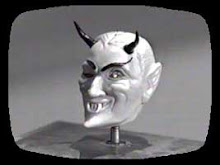tyrant
n.

and closer to home, Fidel...
1. An absolute ruler who governs without restrictions.
2. A ruler who exercises power in a harsh, cruel manner.
3. An oppressive, harsh, arbitrary person.
Simple enough, someone in a position of power that doesn't have to answer to anyone. History is full of such figures, Stalin...
Mao...

Qualified Immunity-The qualified immunity doctrine protects government officials from liability for civil damages "insofar as their conduct does not violate clearly established statutory or constitutional rights of which a reasonable person would have known." Harlow v. Fitzgerald, 457 U.S. 800, 818 (1982).Too much lawyerspeak for my dumb ass, basically as I read it, if a cop or government official knowingly screws you, they're liable. Fair enough? On the other hand though, Prosecutors enjoy a different kind of immunity, something called Absolute Immunity, which in a nutshell means that when a prosecutor acts within the scope of his prosecutorial duties he is nearly immune from a civil lawsuit no matter how egregious his behavior. The Supreme Court in 1976 ruled that "prosecutors, like judges, must be free to do their jobs without fear of being sued later", fair enough right? This means that the prosecutor knows beforehand that almost no action that he takes in a case will result in civil or criminal punishment. This is an open invitation and temptation to act in the manner of a tyrant. As we know, history is full of examples of what happens when a powerful man is not held accountable for his actions. Don't fret though, as we saw last week, this shield of absolute immunity around the prosecutor is slowly being chipped away. Before we go running for the hills, also remember that a prosecutor is only afforded Absolute Immunity when he is acting as a prosecutor, the minute he steps outside his role as an advocate and into the role of an administrator or investigator, he loses that shield of Absolute Immunity and enjoys the same Qualified Immunity as the police do.
Where is this going? Be patient, you'll see.



No comments:
Post a Comment